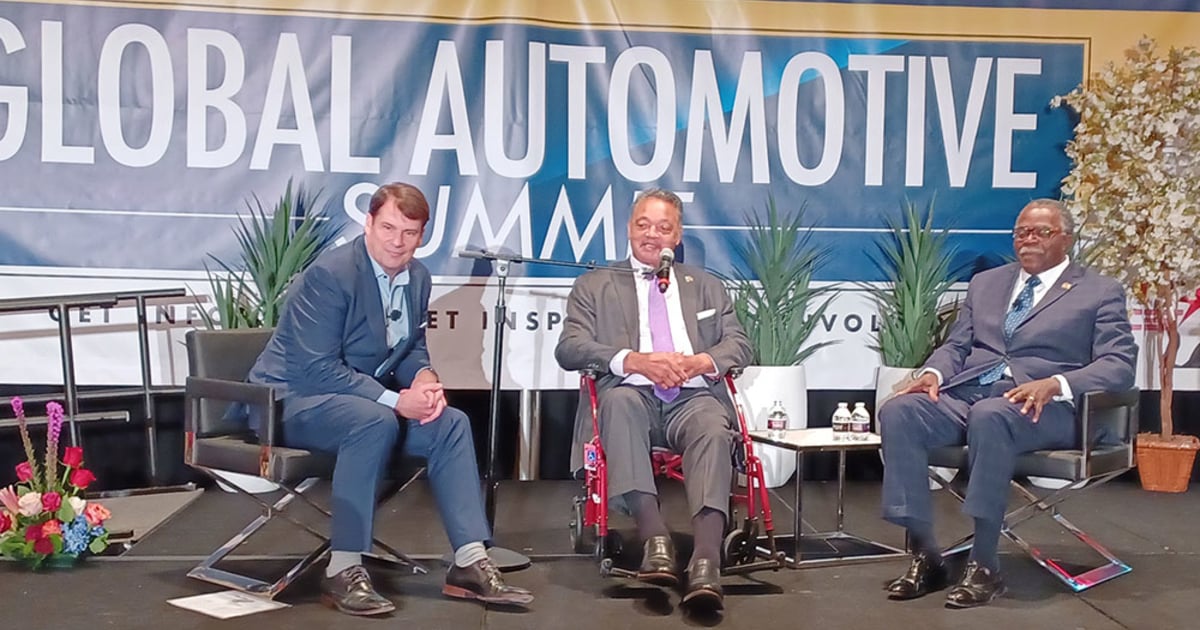
Ford Motor Co. CEO Jim Farley said insourcing work from suppliers will be crucial to keeping jobs at the automaker as the industry shifts to electric vehicles composed of far fewer parts.
As Ford undergoes “the biggest change to our industrial system since the ’20s there are also some storm clouds,” Farley said Tuesday at the Rainbow PUSH Global Automotive Summit in Detroit.
“It takes 40 percent less labor to make an electric car. So as a family company, we have to insource so that everyone has a role. We have a whole new supply chain to fill out, and diversity has to play an even greater role in that than we’ve had.”
Jobs, minority inclusion and union representation were among the key points in a discussion between Farley and the Rev. Jesse Jackson at the event.
The transition to EVs is especially important for Black-owned businesses whose primary role in the industry is to supply automakers, event Chairman John Graves said.
With EVs made up of 40 percent fewer parts than traditional internal combustion engine vehicles, minorities are at risk of being left behind, Graves said at the annual conference attended by industry executives.
“It’s not too late,” he said. “There’s plenty of time, although we’re approaching third base, for the minority African American companies to play a role with the EVs.”
Farley echoed Graves by continuing the analogy: “We’re in the second inning of a nine-inning game,” he said.
Farley said Ford is reverting to its business model from a century ago.
“We’re going back to our model on the Model A in the Rouge (factory) where we insource motors and gear boxes … and equivalent of axles,” he said. “We’ve outsourced to a lot of our tier ones a lot of the powertrain work. That’s going to come in the company. We’re going back to where we were … Why? Because that’s where the value creation is.”
Farley also said the automaker would welcome unionization at its new EV plants in Kentucky and Tennessee if employees decide to organize. How automakers plan to handle union efforts among employees at plants operated under joint ventures — with SK Innovation in Ford’s case — had been a question mark.
“Our employees will decide, but we do completely honor whatever choice they make. I mean, we’d be thrilled, but it’s their choice, and we will honor whatever they decide to do. We haven’t really started to hire people. We broke ground. We’re starting to build.”